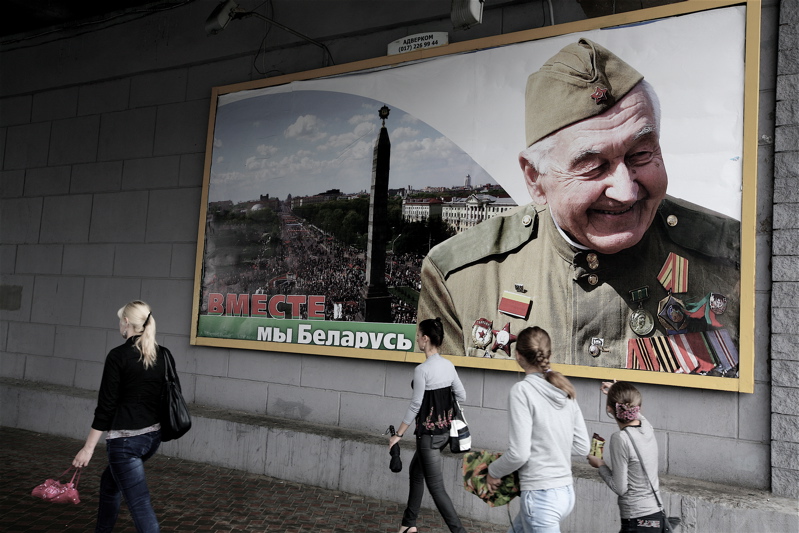
Alyaksandr Lukashenka, Belarus's authoritarian president, has a low opinion of people who use social-networking websites. "The typical person," he said of them earlier this month, "is 16 or 17 years old, a cigarette dangling from his lips and a girl under his left arm… They are part of our people, though it's sad that today we have such youth."
The caricature may be lazy, although it is not difficult to see why Mr Lukashenka may want to deploy it. In the wake of a police crackdown in December that saw hundreds jailed after a stolen presidential election, young Belarussians have begun organising themselves on social-networking sites, one of the few spaces that the state does not control.
These virtual protests have led to real-world actions. Last Wednesday, for the third consecutive week, several thousand people gathered in Minsk's Oktyabr Square for a wordless, hand-clapping protest against the economic hardships caused by reckless government spending. I was on my way to dinner when I heard waves of clapping from multiple directions as groups converged on a street corner. The noise rose and fell for half an hour, with motorists honking in support. Security agents were on hand to film the protesters, many of whom shot right back with camera-phones.
The protest's organisers assumed that if no slogans were shouted or posters raised, the authorities would have no pretext to step in with their truncheons. Over previous weeks this scheme had worked, with more and more youngsters showing up. Andrei, a 22-year-old first-timer who claimed to earn a living playing online poker, said he stumbled on the protests and joined in. His friend Vitaly, an accountant, said he was clapping to "annoy the president."
Yet last Wednesday the authorities decided they had had enough. Nearly an hour into the protest riot police crashed the party, dragging away about a dozen young men in front of me, to jeers and whistles. Scores were arrested in Minsk, and over 450 in other towns. Many will remain in jail on charges of "hooliganism."
The KGB, as Belarus's security agency is still called, mutters darkly about Facebook and Twitter. But the main social-media tool used to organise protests is Vkontakte, a Russian-language site. More than 215,000 people have joined the "Movement of the Future", a Vkontakte group started in September 2009 by dissident Belarussian activists-in-exile. Smaller groups range from the straightforward ("We're Sick of Lukashenka") to the satirical ("I Dreamt of Lukashenka").
After last week's unrest the authorities dismissed the prospect of staging a revolution through social-networking sites as a "childish prank". Still, taking no chances, they reaffirmed that unsanctioned street protests are a criminal offence. Mr Lukashenka has promised to "strike hard". But the protestors have vowed to continue on Wednesday: same time, same place.
Not everyone believes their hype. Alexander Feduta, a political analyst who once worked for Mr Lukashenka, notes that the protests have not attracted huge numbers and are "yet to prove themselves against the heavy hand of the state." The true sign of change, he says, will be when public-sector workers and rural Belarussians start to break ranks with a president whom they see as a guarantee of stability. Many call him "batka" ("Father").
Their loyalties will be tested in the coming months as their buying power plunges and basic goods become scarcer. A 60% devaluation of the rouble since January has in effect cut salaries in half. Food prices are rocketing and essentials are in short supply. Trade unions, traditionally a bedrock of support for Mr Lukashenka, warn that the uncertainty is stoking tension across the country.
To ease the near-term strain, the president could yet sell off valuable state assets to Russia—an ambitious privatisation programme was supposedly the price for a recent bail-out agreement with the Kremlin—or make enough concessions to secure a massive IMF loan. But Russia is once again getting testy over an outstanding electricity debt, threatening last week to cut off supplies if Belarus does not pay up. Either way, the longer the squeeze persists, the thinner his power base's patience will wear and the more likely they will be to take to streets. The young and restless await them.



